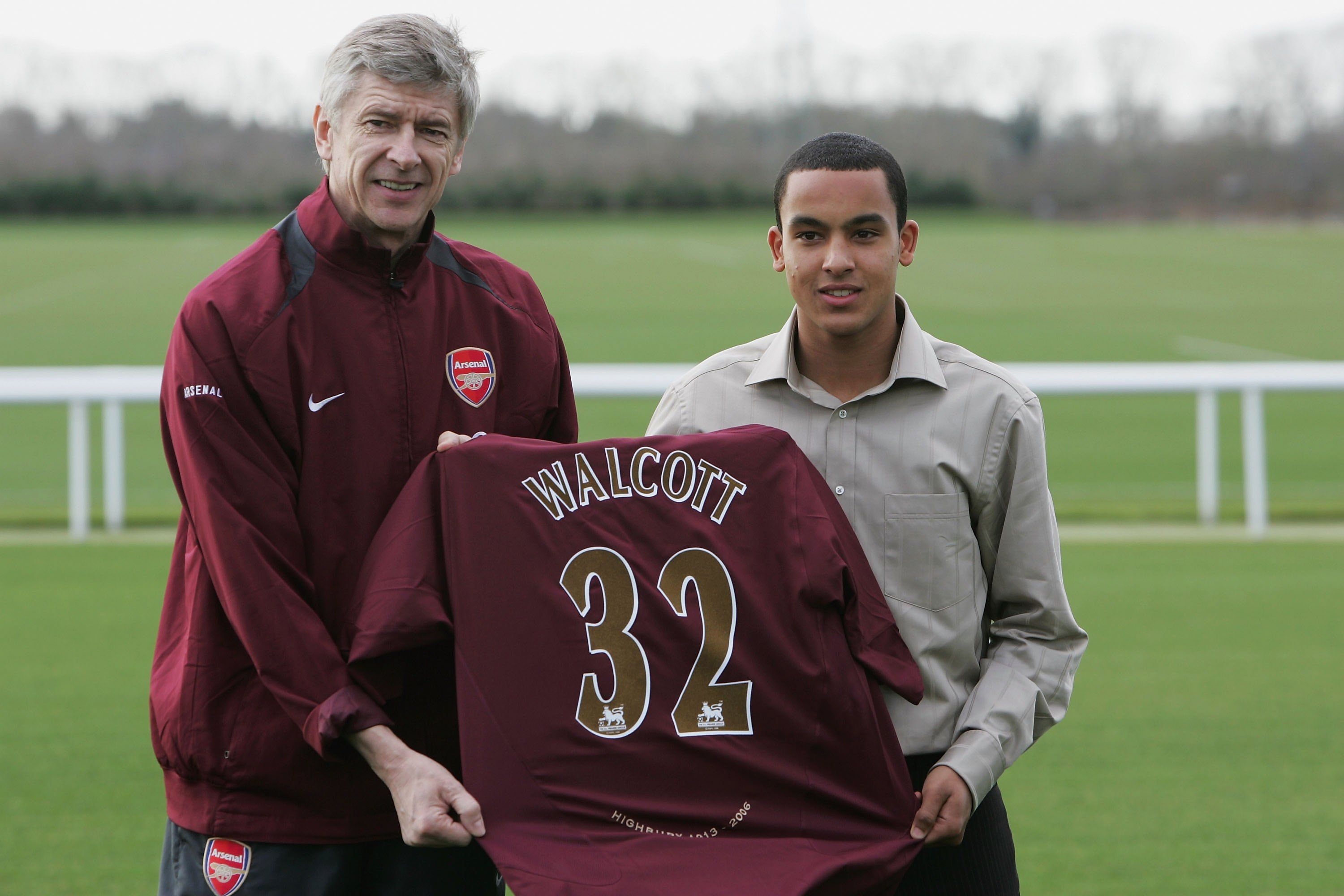

Share
19th January 2018
11:51am GMT

 When Walcott joined Arsenal as a 16-year-old, and was taken to the World Cup that summer, many expected him to develop into a world-beater for club and country, he even inherited Thierry Henry's number 14 jersey at Arsenal. As such, there's a feeling that he didn't fulfil his potential. Yet, what evidence was there to assume that he would become world class, beyond being very fast? It's not like Walcott had the talent of Wayne Rooney, or Cesc Fabregas, as a 16-year-old. He certainly didn't possess their game intelligence or ability on the ball.
In truth, Walcott is arguably more of an athlete playing football at an elite level, rather than an elite footballer who happens to also be a great athlete. Which is fair enough, he has had a good career, and is unlikely to have many regrets.
https://twitter.com/barneyronay/status/953548574389948416
The only puzzling aspect of Walcott's £20m transfer to Everton is, why now? Why has Wenger finally decided to sell the longest-serving player in his squad? It has arguably been obvious to many for a couple of seasons that Walcott was unlikely to ever develop into the player Wenger had hoped he would he become. Why sell him now, and not three years ago?
Walcott was a popular figure in the dressing room, as evidenced by several past and present Arsenal players wishing him well at Everton.
https://twitter.com/MesutOzil1088/status/953733846561951744
https://twitter.com/Podolski10/status/953742510152495104
https://twitter.com/PetrCech/status/953722316286054402
He also had a decent record last season, scoring 19 goals in 37 games, the second-best season of his career in terms of goals scored. Yet, he only made six appearances in the Premier League this season, and was restricted to Europa League and League Cup starts. Wenger seemed to suddenly turn-off him, and this theory from journalist Matt Scott could have the answer why.
"He's not a leader, you know that much," Scott said about the winger's move to Everton on The Totally Football Show podcast.
When Walcott joined Arsenal as a 16-year-old, and was taken to the World Cup that summer, many expected him to develop into a world-beater for club and country, he even inherited Thierry Henry's number 14 jersey at Arsenal. As such, there's a feeling that he didn't fulfil his potential. Yet, what evidence was there to assume that he would become world class, beyond being very fast? It's not like Walcott had the talent of Wayne Rooney, or Cesc Fabregas, as a 16-year-old. He certainly didn't possess their game intelligence or ability on the ball.
In truth, Walcott is arguably more of an athlete playing football at an elite level, rather than an elite footballer who happens to also be a great athlete. Which is fair enough, he has had a good career, and is unlikely to have many regrets.
https://twitter.com/barneyronay/status/953548574389948416
The only puzzling aspect of Walcott's £20m transfer to Everton is, why now? Why has Wenger finally decided to sell the longest-serving player in his squad? It has arguably been obvious to many for a couple of seasons that Walcott was unlikely to ever develop into the player Wenger had hoped he would he become. Why sell him now, and not three years ago?
Walcott was a popular figure in the dressing room, as evidenced by several past and present Arsenal players wishing him well at Everton.
https://twitter.com/MesutOzil1088/status/953733846561951744
https://twitter.com/Podolski10/status/953742510152495104
https://twitter.com/PetrCech/status/953722316286054402
He also had a decent record last season, scoring 19 goals in 37 games, the second-best season of his career in terms of goals scored. Yet, he only made six appearances in the Premier League this season, and was restricted to Europa League and League Cup starts. Wenger seemed to suddenly turn-off him, and this theory from journalist Matt Scott could have the answer why.
"He's not a leader, you know that much," Scott said about the winger's move to Everton on The Totally Football Show podcast.
"The reason why he's been bombed out of Arsenal is because of the comments that he made after the defeat to Crystal Palace, in which he was the captain, last season, when he said, 'we weren't prepared properly for the game.' Wenger, after that, has not played him, he has not started."https://twitter.com/theowalcott/status/953676372047777797 The comments Scott referred to were made by Walcott following Arsenal's 3-0 defeat away to Crystal Palace last April. He was captain for the match, and told Sky Sports after the final whistle that, "they wanted it more, you could sense that from the kick-off." The comments were embarrassing, and many felt they typified Arsenal's meek approach in the game. Jamie Carragher was appalled by the admission, and it seems Wenger wasn't too pleased either. He dropped Walcott for Arsenal's next match, and started him two weeks later in a 1-0 win over Leicester City. However, that was his last Premier League start for the club. He didn't feature in the team's FA Cup semi-final victory over Manchester City, and played no part in the final win against Chelsea. This season, he hasn't started a single league match, and has played only 63 minutes of football for the club in the Premier League. There might be something to the theory that the comments following the Palace match effectively ended Walcott's Arsenal career. Wenger said that he "regrets" that Walcott has decided to leave, but understands that he wanted to go play regularly elsewhere. He praised him as an "intelligent" person with "complete integrity, total commitment and focus on his job." There are clearly no ill-feelings from the Arsenal manager towards the player, but it's possible Walcott's comments were the moment Wenger realised it wasn't going to work out for him at the club.
Explore more on these topics: